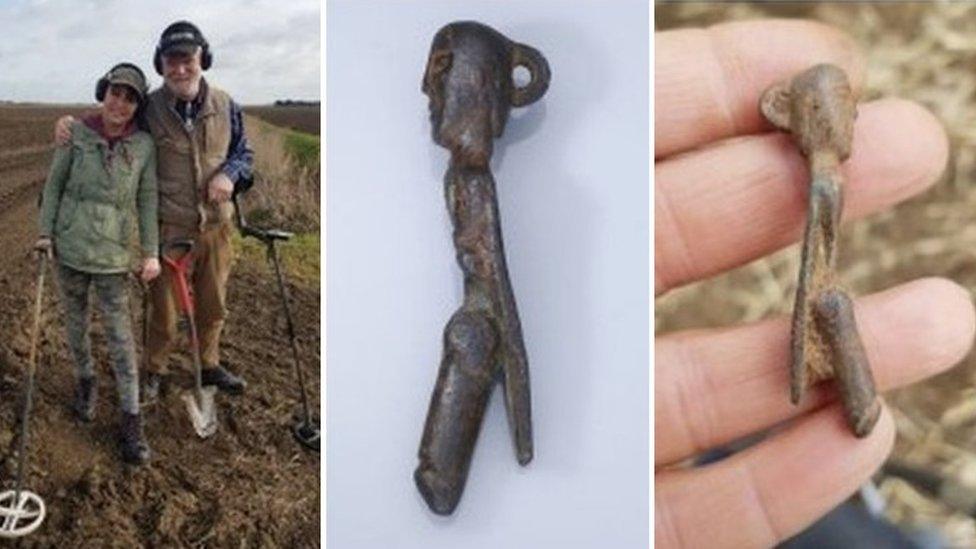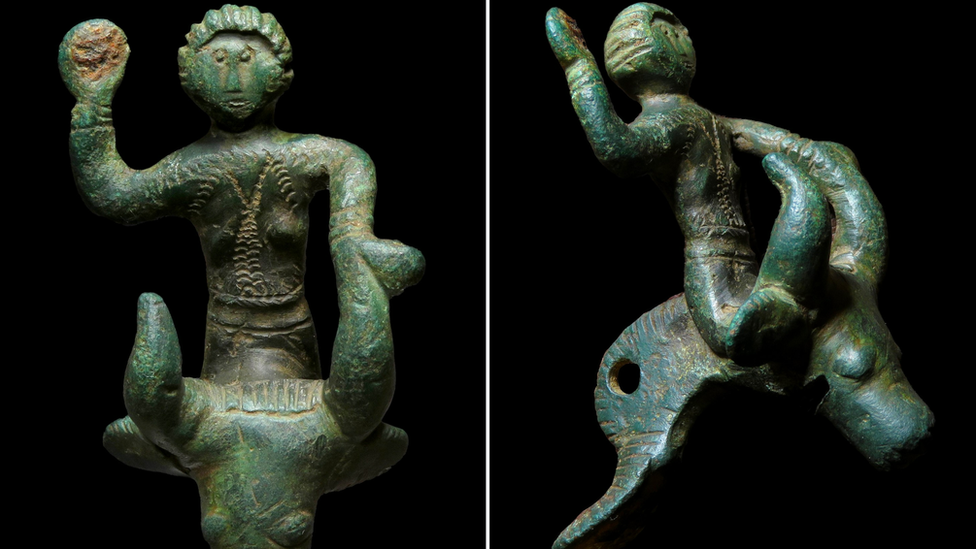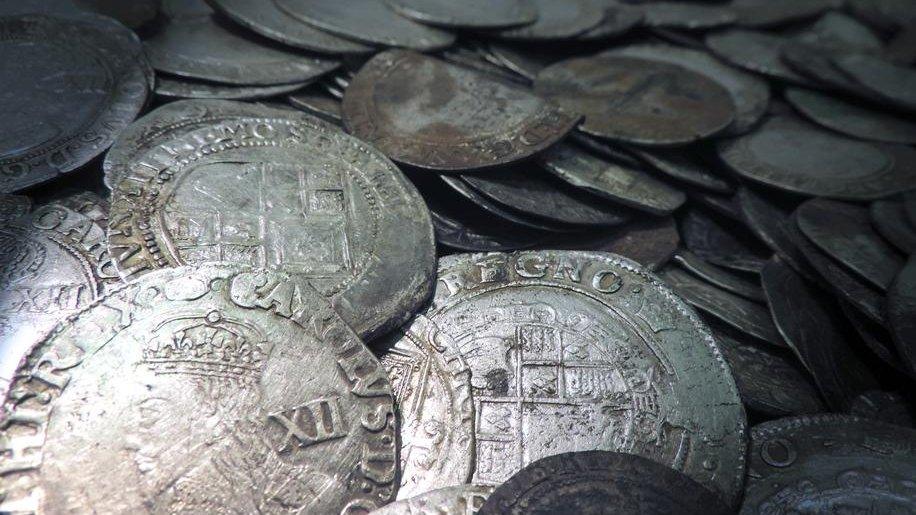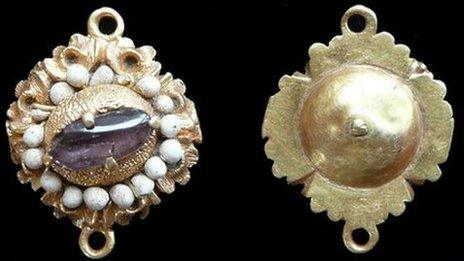Detectorists' Lincolnshire 'good luck' find to be auctioned
- Published

The male figure, believed to be Celtic from the 1st Century, is thought to represent the Roman god Mercury
A 2,000-year-old "good luck charm" found at a metal detectorists' meet up in Lincolnshire is to be sold.
The male figure, believed to be Celtic from the 1st Century, is thought to represent the Roman god Mercury.
Paul Shepherd and his wife Joanne were comparing finds in Haconby when he realised its significance.
The bronze nude features an "oversized phallus" and is estimated to make £800 - £1,200 at auction.
Mr Shepherd, who has been detecting for 25 years, said: "What I love about metal-detecting is that absolute surprise of what you find, and this certainly came out of the blue!"
The figure measures two inches (5cm) high by half an inch (1.2cm) wide.
Nigel Mills, coin and artefact consultant at Noonans, said it was a representation of a fertility god, "probably based on the Roman god Mercury as he is holding a purse in his left hand.
"This male figure with its hinged oversized phallus would have had symbolic powers of good luck and warding off evil spirits and may have served as a locking mechanism as a buckle to hold a belt and scabbard for a sword," he said.
"There is nothing quite like it, I am hoping it will attract a lot of attention," he added.

Follow BBC East Yorkshire and Lincolnshire on Facebook, external, Twitter, external, and Instagram, external. Send your story ideas to yorkslincs.news@bbc.co.uk, external.
Related topics
- Published7 November 2022

- Published16 November 2016

- Published5 February 2014
